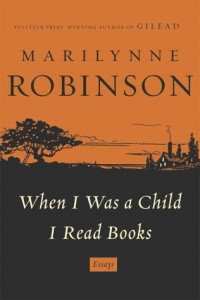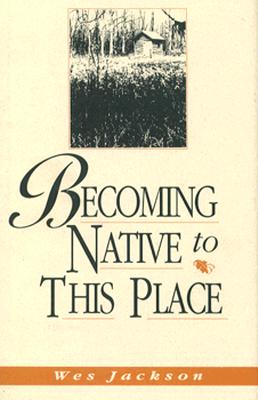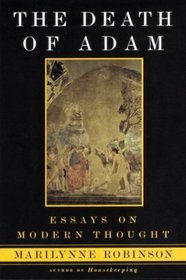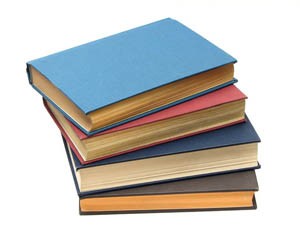When I Was a Child I Read Books
I belong to the community of the written word in several ways. First, books have taught me most of what I know, and they have trained my attention and my imagination. Second, they gave me a sense of the possible, which is the great service — and too often, when it is ungenerous, the great disservice — a community performs for its members. Third, they embodied richness and refinement of language, and the artful use of language in the service of the imagination. Fourth, they gave me and still give me courage. Sometimes, when I have spent days in my study dreaming a world while the world itself shines outside my windows, forgetting to call my mother because one of my nonbeings has come up with a thought that interests me, I think, this is a very odd way to spend a life. But I have my library all around me, my cloud of witnesses to the strangeness and brilliance of human experience, who have helped me to my deepest enjoyments of it. Every writer I know, when asked how to become a writer, responds with one word: Read. Excellent advice, for a great many reasons, a few of which I have suggested here. (Marilynne Robinson)
 When I Was a Child I Read Books might sound like a book about reading, but Marilynne Robinson’s new book of essays encompasses science, religion, education and politics. The essays are complex and reflective, and Robinson threads her way through the “community of the written word” as a member in full standing with Emerson, Whitman, Calvin, Moses, and other weighty figures from bookshelves past and present.
When I Was a Child I Read Books might sound like a book about reading, but Marilynne Robinson’s new book of essays encompasses science, religion, education and politics. The essays are complex and reflective, and Robinson threads her way through the “community of the written word” as a member in full standing with Emerson, Whitman, Calvin, Moses, and other weighty figures from bookshelves past and present.
Probably my favorite strands of thought here concern Robinson’s disentanglement of the Old Testament from popular misconceptions and accusations. She argues convincingly that Mosaic Law is more truly liberal in spirit than critics of various theological and historic camps ever have recognized. She makes us think about the ways terms change, and the ways that scholarship builds on unchallenged assumptions — some of them erroneous.
I liked the book’s autobiographical elements too. We learn a bit about Robinson’s intellectual life growing up, and it was particularly interesting to me to read this on the heels of Writing a Woman’s Life because Robinson’s story exemplifies an alternative to the expected trajectory for women of her era. After the groundwork laid in a childhood of solitude and reading, societal institutions began to change, and she was ready. “If I had lived a generation earlier, I might have thought about many of the things that interest me now, but not with the discipline that comes with writing about them or teaching, and not with the rigor that comes with being exposed to response and criticism,” she explains. “And, of course, I would have had no part in conversations that I consider important.” She also mentions how her childhood contributed thematically to Housekeeping, her first novel, still fresh in my mind from my recent reading.
Robinson identifies herself as liberal, according to the terms of Mosaic Law established early in the book. There is a great priority in the Bible on generosity to the vulnerable and needy, and the ways our society has evolved, along with the terms “liberal” and “conservative,” have increased callousness rather than humaneness. The politically “conservative” camp is associated with the Bible, but tends to be more unapologetically capitalist than the “liberal” camp, which for its part rejects the moral prohibitions attributed to the Bible. Where, I wondered as I read, do I fit in among these terms and trends? To what extent would I rather find different and more meaningful terms altogether?
At times I found myself arguing with Robinson, but for the most part I found her optimism about America to be bracing and encouraging in a way I need. The essays in this book are challenging; Robinson acknowledges that Cicero is the figure from childhood reading that she is most indebted to for her own writing style, and this doesn’t make for a breezy experience of these pages. My mind tingles after its astringent bath in Robinson’s allusive, ruminative, sculpted prose. “We have not escaped, nor have we in any sense diminished, the mystery of our existence,” she writes near the end. “We have only rejected any language that would seem to acknowledge it.” When I Was a Child I Read Books offers a more comprehensive vision of life with its mystery still intact, and as such it constitutes rich food for pondering.
This collection is available as an audiobook, read by the author. MacMillan Audio kindly provided a sample clip, which you can listen to here: Audio Excerpt: When I Was A Child I Read Books



4 Comments
Ruth
Sounds really good!
Alice@Supratentorial
So glad to read this review. I just got this one in the mail but am working my way through Death of Adam (her first collection of essays) first. I love her writing and find it challenging and interesting…but also so dense that I think they will both take me awhile to get through.
Susan (Reading World)
This does sound worthwhile – and an optimistic book? That sounds like something everyone needs now.
GretchenJoanna
I would love to read this! The title draws me right in, as it sounds like the story of my early years, too. But that it is more than a memoir only makes it more appealing. Thank you for a helpful review.